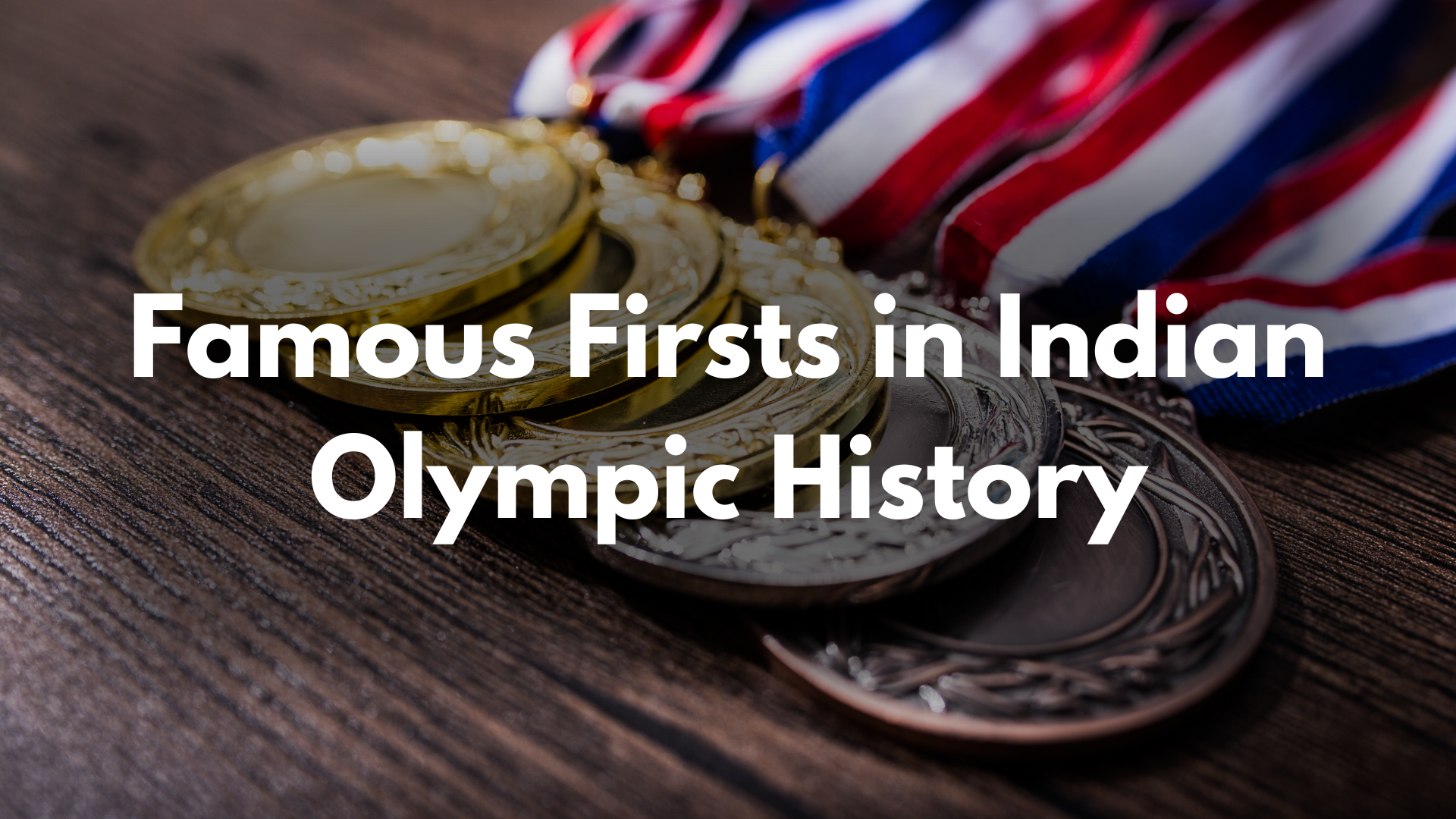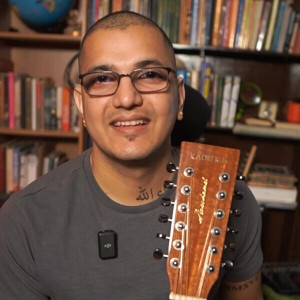India's participation in the Olympics spans over a century, reflecting the nation's enduring passion for sports and athletic excellence. Since making its debut at the 1900 Paris Olympics, India has evolved into a formidable force, with athletes representing the country across a diverse range of sporting disciplines.
Over the years, Indian athletes have showcased their talent and resilience, overcoming numerous challenges to etch their names in Olympic history. From the iconic gold medal in field hockey at the 1928 Amsterdam Olympics to the recent successes in shooting, wrestling, and badminton, India's Olympic journey is a tapestry woven with moments of glory, determination, and national pride.
As we celebrate India's rich sporting heritage and look ahead to the future, let's delve into the fascinating story of India's history in the Olympics, celebrating the triumphs, honouring the athletes, and inspiring generations to come.

Who Was the First Indian to Win an Olympic Medal?
India has a uniquely complicated history with the Olympic Games because of the British Occupation. Before Independence in 1947, the British colonists in India were in a unique position. Some thought of themselves as British, some Indian, and the opinion varied between people in the colonies, in Britain, and in India.
At the 1900 Paris Olympics, neither India or Great Britain had yet registered their National Olympic Committee (NOC) yet, which meant that athletes from both countries entered the Games representing themselves, not their countries.
So, when the first Olympic athlete to represent India (and subsequently win a medal) was a man born to British parents in India, it caused some conflict. Some Britishers thought that his participation and achievement should be credited to Britain since he was of British lineage and living in British India. However, the International Olympic Committee (IOC) ultimately determined that the medals belonged to India.
So, who was this person who caused such a fuss at the Olympics?
India’s First Olympian
Norman Pritchard was born in Calcutta, British India in June of 1875. His parents, George Petersen Pritchard and Helen Maynard Pritchard were born in Britain and moved to Calcutta sometime before Norman’s birth (it’s not clear when exactly).
When he was 25, he entered the Olympics, representing India, in five events: the 110-metre hurdles, the 200-meter hurdles, the 60-metre sprint, the 100-metre sprint, and the 200-metre sprint. He went on to win silver in two of the events (the 200-meter hurdles and the 200-metre sprint), losing only to the two best athletics performers in the world at the time.
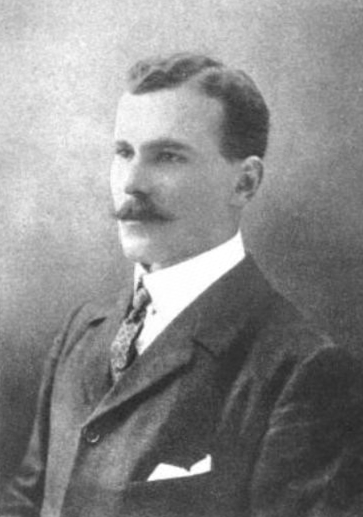
Soon after, he retired from professional sports and moved to Britain. He went on to have a rather successful acting career under the stage name Norman Trevor in Britain and America. Sadly, he passed away at age 54 from what experts now think was Alzheimer’s.
Who Was the First Non-British Indian to Win a Medal?
From 1900 to 1948, only two entities had earned any medals for India: Norman Pritchard and the India Men’s National Field Hockey Team.
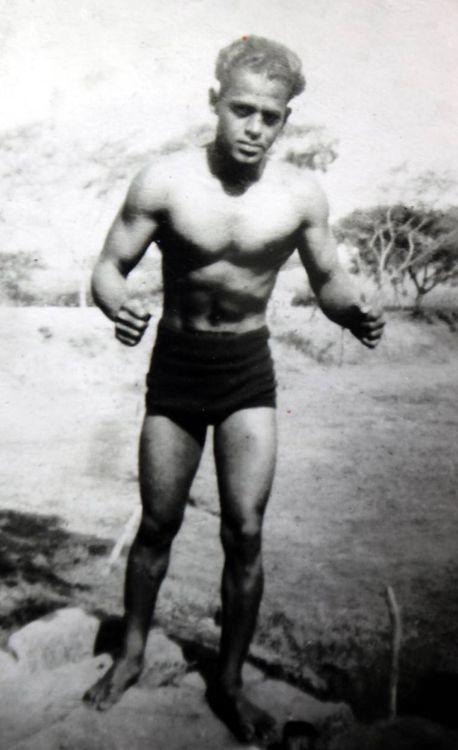
The first Indian (as opposed to British-Indian with British ancestry) to win a medal for India was K. D. Jadhav, who won the bronze medal for men’s bantamweight wrestling in the 1952 Helsinki Games.
He achieved this goal after participating in the 1948 London Olympics in men’s flyweight wresting and ultimately losing without medaling, which inspired him to train even harder to prepare for Helsinki.
After his bronze win, he was hailed a national icon and greeted by a crowd of supporters at the Karad Railway Station as he returned home from the Games. He was included in part of the torch run for the 1982 Asian Games as a sign of honour and has received several posthumous awards and honours. Sadly, the sports federation and Indian government hadn’t taken care of him in his older years, although he had been a commendable member of the police force for 27 years. He lived his final few years in poverty before passing away due to a road accident, after which his widow continued to struggle.
Who Won the First Gold Medal for India in the Olympics?
The first gold medal secured for India in the Olympics was not won by an individual.
In the 1928 Amsterdam Games, the India Men's National Field Hockey Team won India’s only gold that year. They defeated the Netherlands 3-0 in the finals and would go on to win gold in the next six consecutive Olympic Games (1928, ‘32, ‘36, ‘48, ‘52 and ‘56; there were no Games in 1940 and ‘44 due to WWII).
Their undefeated streak ended in a 1-0 loss against Pakistan in 1960, but India again won gold in 1964. The team declined and won a handful of bronze and silver medals between 1968 and 1976 before winning their (to date) final gold medal in 1980.
They were the first gold medallists for India both before and after Indian Independence in 1947.
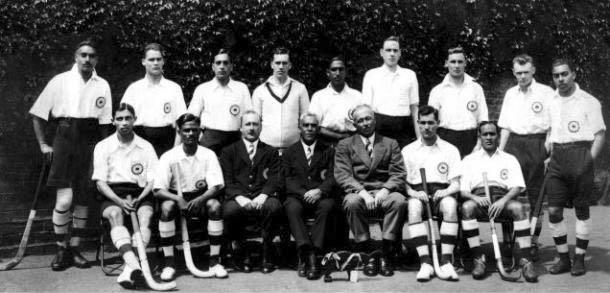
India’s Hockey Team Heyday Stars
In the golden years of India’s Olympic hockey team, there were a few stand-out players, but each player was crucial in the top-notch performance of the entire team.
These players made up the roster of the gold-winning 1928 team.
Jaipal Singh Munda (Captain)
Singh was an accomplished hockey player at Oxford, where he was the first Indian student to be conferred blue in Hockey. He was asked to lead Team India in the 1928 Olympics and with his direction, they won 16 of 17 matches in the league stage (one match being a draw). Unfortunately, he had a dispute with the English team manager and left the team before the knockout stage. He never returned to professional athletics, instead turning to teaching and politics.
Broome Pinniger (Vice Captain)
He played halfback in both the 1928 and 1936 Olympics, winning gold both times.
Richard Allen
As the goalkeeper in the 1928 season, he didn’t allow a single goal to be scored against his team. He played in two more Olympic Seasons after that, only allowing a total of 2 goals to be scored against him the entire time, which is still a record.
Michael Gateley
Not much is known about Mr. Gateley, only that he was a British-Indian student at St George's College, Mussoorie, India, and was a classmate to a few of his fellow teammates.
Since 1900, India has won 35 Olympic medals: 10 Gold, 9 Silver, and 16 Bronze.
William Goodsir-Cullen
Playing three of the knockout matches as halfback or forward, he helped secure the win for Team India as well as inspired many people to love the game of hockey. His alma mater, St. George's College in Mussoorie, even named one of the athletic houses after him and his younger brother, Earnest, who won the hockey gold medal for Team India in 1936.
Leslie Hammond
He played several matches as back in both the 1928 and 1932 Olympics, winning gold both times.
Feroze Khan
The only time Khan competed in the Olympics was 1928. Sometime after the Olympics, he became a respected coach in Pakistan. He is notable for becoming the oldest living Olympics gold winner in the world in 2004 after the previous holder (James Rockefeller, 102 years) passed away. Khan was 100 years old when he passed in 2005.
George Marthins
Like Michael Gateley, not much is known about Mr. Marthins. He was also a student at St. George’s College.
Rex Norris
Born as an Anglo-Indian with a British father, Rex participated only once in the Olympics. After, he became an international field hockey coach based in London. He coached the Dutch team from 1954 to 1956, the Italian team in 1960, and the Mexican team leading up to the 1968 Olympics. Three of his children went on to participate in the Olympics as well; his son Ron entered the 1952 Games as a light welterweight, and his daughters Philomena and Wendy both played for Women’s Team India in hockey.
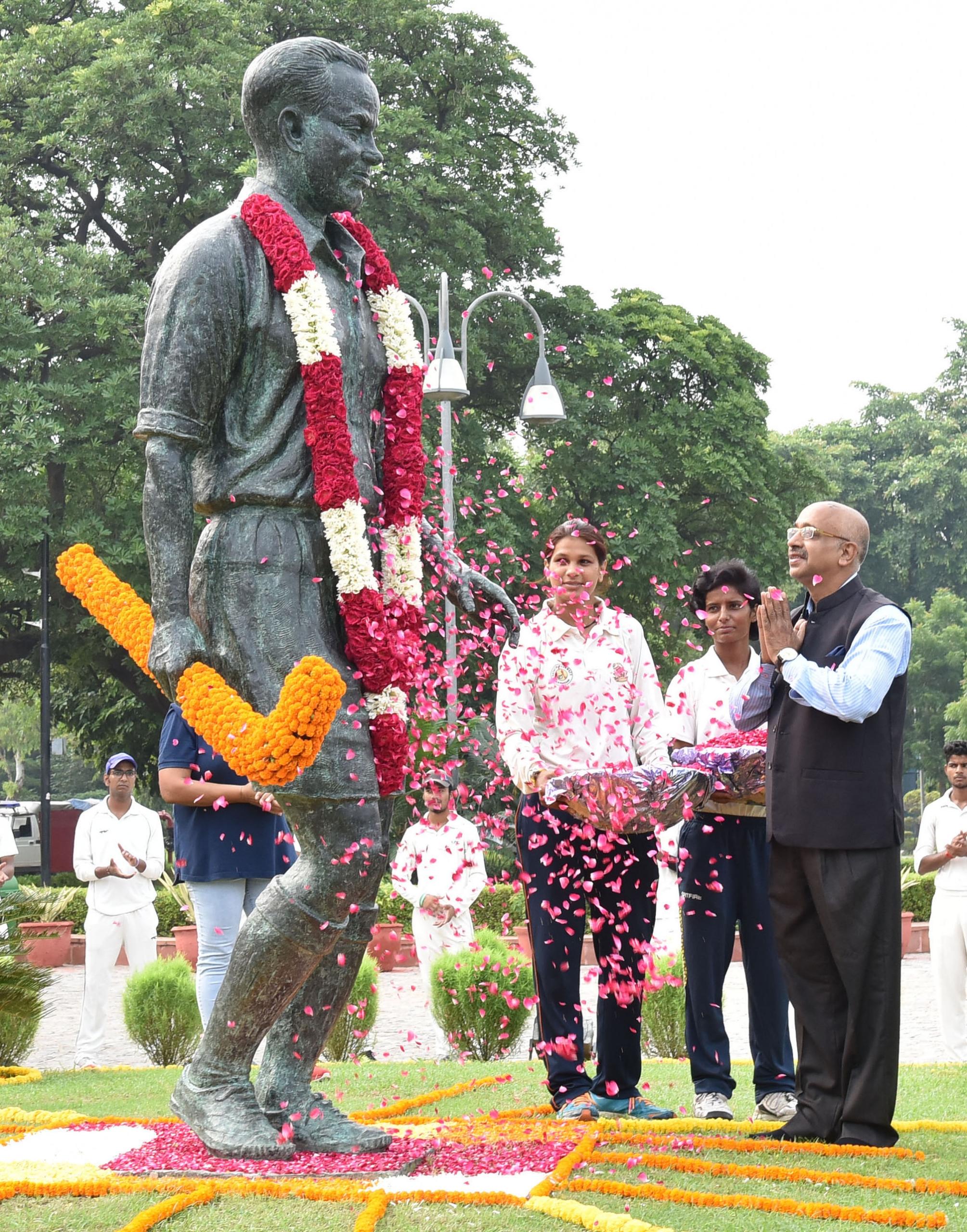
Major Dhyan Chand
A triple gold winner with Team India for the 1928, 1932, and 1936 Olympics, Chand was recognized as an incredible hockey player. His nicknames were The Wizard of Hockey or The Magician of Hockey, and the BBC called him "hockey's equivalent of Muhammad Ali" He was awarded the Padma Bhushan in 1956, and now National Sports Day is celebrated on his birthday every year (29 August). He even has a sporting award named after him, India’s highest, called the Major Dhyan Chand Khel Ratna Award.
Michael Rocque
Another mysterious historical figure, not much is known about Mr. Rocque other than that he played for Team India in 1928. He did not participate in any more Olympic Games afterwards.
Frederic Seaman
While he contributed to the gold win in 1928, not much more is known about Mr. Seaman. As Britishers, his family emigrated to Pennsylvania, USA after Indian Independence.
Ali Shaukat
An important member of the team, he played as a forward in three matches and scored two goals in the 1928 Games. He did not return to play in the Games again.
Sayed Yusuf
Also known as SM Yusef (as his full name was Shahzada Muhammad Yusef), he represented both India and Afghanistan at the 1928 and 1936 Olympic Games, respectively (although he didn’t end up playing in 1936). He played four matches in 1928 as a right-out and a left-half. He also managed the Afghani field hockey team in 1948.
Kher Singh Gill
Our last, but not least, player on the 1928 team, not much is known about Mr. Gill, but surely he helped bring the team to glory!
Who Was the First Indian Woman to Win an Olympics Medal?
The first Indian woman to win a medal was Karnam Malleswari at the 2000 Sydney Olympics, in the 69kg weightlifting category. She competed in the “snatch” and “clean and jerk” events of weightlifting, where she lifted 110 kg and 130 kg, respectively (a total of 240 kg). Her achievement made her the first Indian to ever win a medal in the weightlifting category as well as the first Indian woman to win a medal. Furthermore, her bronze win was the only medal secured by India that year. She retired from competitive weightlifting after this win.
Even before her Olympics appearance, she was an accomplished athlete, having been awarded the Arjuna Award in 1994. She also received the Major Dhyan Chand Khel Ratna Award aka Rajiv Gandhi Khel Ratna Award in 1999 and the Padma Shri Award also in 1999.
Her athletic achievements pre-Olympics include:
- Winning the National Championships in the 52 kg category in 1990 and 1991
- Maintaining the National Champion title for the 54 kg category from 1992 to 1998
- Earning two gold and one bronze medal at the World Weightlifting Championship in 1994
- Winning the World Championship in weightlifting in 1995
- Winning three gold medals in the 1995 Asian Championships, and another in 1996
- Winning two silver medals at the 1994 and 1998 Asian Games
Who Was the First Indian Woman to Compete in the Olympics?
The very first woman to represent India in the Olympics was 17-year-old Nilima Ghose in the 1952 Helsinki Games. She entered in the 100-metre sprint and the 80-metre hurdles. Unfortunately, she failed to qualify for both, so her Olympic career ended there, but still, she was the first woman to take a huge step in representation for both women and India! Her teammate, Indian athlete Mary D’Souza, also competed in the 100-metre sprint later that same day, so they both took a huge leap that day.
Major Firsts in India's Olympic History
| Olympian | Achievements | Year | Category | Rank |
|---|---|---|---|---|
| Norman Pritchard | First Medalist | 1900 Paris | Athletics | Silver |
| First Individual Medalist | 1900 Paris | Athletics | Silver | |
| First Individual Multi-Medalist | 1900 Paris | Athletics | Silver | |
| Men's Field Hockey Team | First Gold Medalist | 1928 Amsterdam | Field Hockey | Gold |
| First Gold Medalist After Independence | 1948 London | Field Hockey | Gold | |
| K. D. Jadhav | First Individual Medalist After Independence | 1952 Helsinki | Wrestling | Bronze |
| Karnam Malleswari | First Female Medalist | 2000 Sydney | Weightlifting | Bronze |
| Abhinav Bindra | First Individual Gold Medalist | 2008 Beijing | Shooting | Gold |
| Sushil Kumar | First Individual Multi-Medalist After Independence | 2008 Beijing | Wrestling | Bronze |
| 2012 London | Wrestling | Silver | ||
| P. V. Sindhu | First Female Multi-Medalist | 2016 Rio de Janeiro | Badminton | Silver |
| 2020 Tokyo | Badminton | Bronze |
As of the pre-2024 Olympics Season, there are no women who have won a gold medal for India, so maybe there will be another “first” in Indian Olympics history this summer!
Be sure not to miss the 2024 Summer Olympics in Paris this year as you’re sure to be dazzled by the athleticism of all the Olympians. Cheer on your favourite athletes as they compete to bring honour to India!
Summarise with AI:

